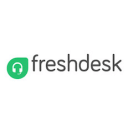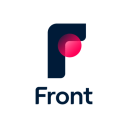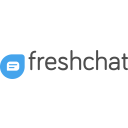Help Scout vs Intercom: Which customer support software should I choose?
- 01Help Scout vs Intercom: overview
- 02What's the difference between Help Scout and Intercom?
- 03Help Scout pros and cons
- 04Intercom pros and cons
- 05Help Scout compared to Intercom
- 06Intercom compared to Help Scout
- 07Features comparison
- 08Help Scout vs Intercom: Which is the best for your business?
- 09Promotions on Customer Support software
- 10Alternatives to Help Scout & Intercom
Access up to $300 savings on Help Scout & $3,108 on Intercom
Access up to $300 savings on Help Scout & $3,108 on Intercom
If you're managing a customer support team, then having a robust customer support platform is essential. These platforms help in organizing customer interactions, improving response times, and enhancing overall customer satisfaction. A good support platform ensures your team is unified, using consistent methods to handle inquiries and issues. However, with so many options available, selecting the right tool can be a challenge.
This article serves as a valuable resource for that purpose. Here, we compare two leading customer support platforms—Help Scout vs Intercom. We'll delve into a thorough comparison of their key features, main differences, and pricing models. With this information, you'll be equipped to make an informed decision on which platform suits your business needs best.
Help Scout vs Intercom: overview
Help Scout and Intercom are two standout choices in the field of customer support software, each offering unique benefits designed to meet different organizational needs.
Help Scout is celebrated for its simplicity and user-centric design, making it ideal for teams looking for an intuitive platform that simplifies customer interactions. It excels in providing personalized customer service with features like shared inboxes and knowledge bases, which are crucial for managing customer queries efficiently and fostering a friendly support experience. On the other hand, Intercom is known for its robust suite of features that include targeted messaging, automated workflows, and rich user analytics. This platform is designed for businesses that require dynamic interaction capabilities, not just with support but also sales and marketing functions.
Choosing between Help Scout and Intercom depends on your specific business needs, team dynamics, and customer engagement strategies. If your priority is managing customer support with simplicity and warmth, Help Scout may be the right choice. For those looking for a powerful tool that integrates deep analytics and automation across various customer touchpoints, Intercom stands out as the more sophisticated option.
What's the difference between Help Scout and Intercom?
Help Scout and Intercom are both renowned customer support platforms, but they cater to different aspects of customer interaction and support management. Understanding the distinctions between these platforms is crucial when deciding which one aligns best with your business needs.
Help Scout is known for its straightforward, no-frills approach to customer support. It primarily offers features like shared mailboxes, a knowledge base, and live chat—all designed with ease of use in mind. This makes Help Scout an ideal choice for businesses that need efficient, reliable tools for direct customer support without the complexity of additional functionalities. Help Scout is particularly favored by small to medium-sized businesses that seek to maintain personal connections with their customers through a simple, user-friendly interface.
Intercom, on the other hand, provides a broader suite of products aimed not just at support, but also at sales and marketing automation. Intercom is distinguished by its use of advanced messaging capabilities, including targeted and behavior-driven communication, which allows businesses to engage customers based on their activities and profile data. Moreover, Intercom integrates AI and machine learning to automate responses and segment customers, making it suitable for businesses that require dynamic interaction strategies across various stages of the customer lifecycle.
A significant difference also lies in the customization and integration capabilities of each platform. While Help Scout offers essential integrations and a more streamlined service, Intercom boasts a wide array of integrations and customization options that can be tailored to complex enterprise environments. This makes Intercom a go-to solution for larger organizations or those that need to heavily customize their customer interaction workflows.
In summary, if your priority is managing straightforward, personalized customer support with minimal setup, Help Scout is likely the better option. If you require a more robust tool that can handle complex customer engagement strategies and integrate deeply with other business functions, Intercom would be the more appropriate choice.

6 months free on the Plus plan on Help Scout
Get 6 months free on the Plus plan on Help Scout and up to $300 savings with Secret.
Help Scout pros and cons
What are the advantages of Help Scout?
- Intuitive interface: Help Scout offers a clean and intuitive interface that is easy to navigate, making it simple for customer support agents to use without extensive training.
- Collaborative features: It allows teams to collaborate efficiently through shared inboxes, notes, and assignments, enabling seamless communication and coordination among team members.
- Automation and workflow: Help Scout provides automation tools and customizable workflows that can streamline repetitive tasks, saving time for support teams and ensuring consistent service delivery.
- Reporting and analytics: It offers robust reporting and analytics features, allowing businesses to track key metrics, measure performance, and gain insights into customer behavior and satisfaction.
- Integration ecosystem: Help Scout integrates with a wide range of third-party applications and tools, such as CRM systems, help desk software, and communication platforms, enabling businesses to create a customized support ecosystem that fits their needs.
What are the disadvantages of Help Scout?
- Limited customization: While Help Scout is known for its simplicity, some users may find its customization options to be limited compared to other customer service solutions, especially for more complex workflows and integrations.
- Cost: Depending on the plan and the number of users, Help Scout's pricing can be relatively higher compared to some other alternatives in the market, which may be a concern for budget-conscious businesses.
- Learning curve for advanced features: While Help Scout's basic features are easy to use, mastering its more advanced features, such as automation and customization options, may require some learning and experimentation.
- Lack of built-in chat support: Unlike some other customer service platforms, Help Scout does not include built-in live chat support, which may be a drawback for businesses that heavily rely on real-time customer interactions.
- Limited customer support channels: While Help Scout supports email, chat, and phone channels, it may not offer as many communication options as some other platforms, which could be a limitation for businesses with diverse customer support needs.
Compare Help Scout to other tools
Intercom pros and cons
What are the advantages of Intercom?
- Unified platform: Intercom provides a unified platform for businesses to manage customer interactions across multiple channels, including live chat, email, and in-app messaging, streamlining communication and improving customer experience.
- Advanced targeting and segmentation: It offers powerful targeting and segmentation capabilities, allowing businesses to personalize messages and content based on user behavior, demographics, and other criteria, thereby increasing engagement and conversion rates.
- Automation and workflows: Intercom provides automation tools and customizable workflows that can help businesses automate routine tasks, such as sending automated messages, qualifying leads, and routing conversations, saving time and improving efficiency.
- Analytics and insights: It offers robust analytics and reporting features that provide businesses with valuable insights into customer behavior, engagement metrics, and performance of messaging campaigns, enabling data-driven decision-making and optimization.
- Integration ecosystem: Intercom integrates with a wide range of third-party applications and services, including CRM systems, help desk software, and marketing automation tools, allowing businesses to create a seamless workflow and leverage their existing tech stack.
What are the disadvantages of Intercom?
- Cost: Intercom's pricing can be relatively high, especially for businesses with large customer bases or advanced feature requirements, which may be a concern for budget-conscious organizations.
- Learning curve: While Intercom offers a rich set of features, mastering its platform and maximizing its potential may require some time and effort, particularly for users who are new to customer messaging and automation tools.
- Limited customization: Some users may find Intercom's customization options to be limited compared to other platforms, especially when it comes to designing highly tailored messaging experiences or implementing complex workflows.
- Reliance on third-party integrations: While Intercom integrates with many third-party applications, some users may find that certain integrations are not available or may require additional development effort, which could impact their ability to create a fully integrated ecosystem.
- Complexity for small businesses: While Intercom offers powerful features, it may be overly complex or feature-rich for some small businesses or startups, who may prefer simpler solutions that better fit their needs and budget.
Compare Intercom to other tools
Help Scout compared to Intercom
Help Scout and Intercom are both customer service solutions but differ in focus and approach. Help Scout emphasizes simplicity and ease of use, offering an intuitive interface ideal for teams seeking straightforward communication and collaboration. It excels in email management and basic ticketing systems. In contrast, Intercom provides a robust messaging platform with advanced targeting and automation features, ideal for businesses prioritizing personalized customer engagement across various channels.
While Help Scout suits those valuing simplicity and efficiency, Intercom caters to organizations seeking comprehensive customer messaging capabilities with extensive customization and integration options.
Is Help Scout better than Intercom?
Choosing between Help Scout and Intercom depends on your specific business needs. Help Scout is particularly effective for teams that prioritize a no-frills approach to customer service with efficient email management. It’s a great tool for those who need a functional, user-friendly service platform without unnecessary complexity.
On the other hand, Intercom stands out for businesses that require dynamic customer interaction and engagement. Its strengths lie in its ability to facilitate sophisticated, personalized communication strategies that can scale according to user interaction, making it ideal for enterprises looking to deepen customer relationships through technology-driven solutions.
What is Help Scout best used for?
Help Scout is best used for managing customer support interactions efficiently and collaboratively. Its intuitive interface and shared inbox feature streamline communication among team members, ensuring timely responses to customer inquiries. Ideal for businesses of all sizes, Help Scout excels in email management, ticketing systems, and basic customer support workflows. It offers simplicity without sacrificing functionality, making it accessible to both small teams and larger organizations.
With its focus on ease of use and straightforward communication tools, Help Scout is particularly well-suited for companies seeking a user-friendly solution to enhance their customer service operations and deliver exceptional support experiences.
Can Help Scout replace Intercom?
While both Help Scout and Intercom offer customer service solutions, they serve different purposes and excel in distinct areas. Help Scout focuses on efficient email management and collaborative support workflows, ideal for teams seeking simplicity and streamlined communication.
In contrast, Intercom specializes in advanced messaging capabilities, targeting, and automation features, suitable for businesses prioritizing personalized customer engagement across multiple channels. While Help Scout can enhance certain aspects of customer support, it may not fully replace Intercom's comprehensive messaging platform.
Is Help Scout cheaper than Intercom?
Help Scout tends to be more cost-effective than Intercom for businesses primarily focused on email management and basic customer support needs. Its pricing structure is typically more straightforward, with plans based on the number of users and mailboxes. In contrast, Intercom's pricing can be higher due to its comprehensive messaging platform and advanced features like targeted messaging and automation.
While Help Scout’s pricing may offer more budget-friendly options for organizations prioritizing simplicity and efficiency in customer support, the decision ultimately depends on specific requirements, desired features, and the overall budget allocation for customer communication solutions.
Is there a better Customer Support software than Help Scout?
When evaluating customer service software options, it's crucial to consider alternatives to Help Scout to ensure you find the best fit for your specific business needs.
Several noteworthy alternatives to Help Scout include Intercom, Zendesk, Freshdesk, and Groove.
Choosing the optimal customer service software depends on factors such as your team size, support requirements, desired features, and budget. While Help Scout excels in simplicity and email management, exploring these alternatives can offer valuable perspectives and help you make an informed decision that aligns precisely with your customer service objectives and growth trajectory.
6 months free on the Plus plan on Help Scout
Get 6 months free on the Plus plan on Help Scout and up to $300 savings with Secret.
Intercom compared to Help Scout
Intercom and Help Scout are both customer service platforms, yet they cater to different needs. Intercom shines with its advanced messaging capabilities, targeted communication, and automation features, ideal for businesses seeking personalized customer engagement across various channels. Its versatility extends to in-app messaging and robust integration options.
Conversely, Help Scout prioritizes simplicity and efficiency in email management and collaborative support workflows, appealing to teams valuing straightforward communication tools. While Intercom offers comprehensive messaging solutions, Help Scout excels in streamlined customer support interactions.
Is Intercom better than Help Scout?
The choice between Intercom and Help Scout hinges on the specific requirements of customer engagement and support within an organization. Intercom excels in environments where interactive, personalized communication is key to retaining customer interest and enhancing user experience. Its sophisticated messaging system allows businesses to implement targeted strategies that adapt to customer behavior and preferences. This makes it particularly effective for dynamic businesses aiming to innovate and evolve their customer interaction.
Conversely, Help Scout is tailored for teams that benefit from a cleaner, more direct approach to customer service, emphasizing quick resolutions and ease of use without the complexity of extensive features. Thus, Intercom is better suited for those looking to leverage complex, adaptive communication tools to foster deeper customer relationships.
What is Intercom best used for?
Intercom is best used for businesses prioritizing personalized customer engagement across multiple channels. Its advanced messaging capabilities enable targeted communication, automation, and real-time interactions, enhancing customer experience and driving conversions. Intercom excels in in-app messaging, allowing businesses to reach users directly within their products. Moreover, its robust integration options enable seamless connectivity with other tools and platforms.
Ideal for companies seeking sophisticated customer engagement solutions, Intercom facilitates tailored communication based on user behavior, demographics, and preferences. With its emphasis on personalized interactions and comprehensive messaging features, Intercom empowers businesses to build stronger relationships with their customers and optimize their marketing and support efforts.
Can Intercom replace Help Scout?
While Intercom offers advanced messaging capabilities, it may not fully replace Help Scout's focus on streamlined email management and collaborative support workflows. Intercom excels in personalized customer engagement across multiple channels, with features like targeted communication and automation. However, Help Scout prioritizes simplicity and efficiency in customer support interactions, particularly through email.
Whether Intercom can replace Help Scout depends on specific business needs and priorities. While Intercom may enhance certain aspects of customer communication, Help Scout's specialized functionality in email management may still be preferred for teams seeking straightforward support operations.
Is Intercom cheaper than Help Scout?
Intercom's pricing structure may vary depending on the desired features and usage, but it generally tends to be more expensive than Help Scout. Intercom offers advanced messaging capabilities, targeted communication, and automation features, which may justify its higher cost for businesses seeking comprehensive customer engagement solutions.
On the other hand, Help Scout prioritizes simplicity and efficiency in email management and collaborative support workflows at a potentially lower price point. While Intercom's pricing may be higher, it offers a broader range of features and functionality.
Is there a better Collaboration software than Intercom?
When considering customer messaging platforms, it's crucial to explore alternatives to Intercom to find the best fit for your specific business needs.
Several notable alternatives to Intercom in the customer service software landscape include Help Scout, Salesforce Service Cloud, Front, and LiveChat.
Selecting the optimal customer messaging platform depends on factors such as your team size, support requirements, desired features, and budget. While Intercom offers advanced messaging capabilities and targeted communication, exploring these alternatives can offer valuable perspectives and assist you in making an informed decision that aligns precisely with your customer service objectives and growth trajectory.
1 year free on the Advanced plan on Intercom
Get 1 year free on the Advanced plan on Intercom and up to $3,108 savings with Secret.
Features comparison
Intercom's Multilingual Support Advantage Over Help Scout
Intercom's automatic language detection feature facilitates clear communication with a global customer base by responding in their preferred language. For instance, when a customer sends a message in a language other than English, Intercom automatically detects the language and prompts the support agent to respond accordingly, enhancing the customer experience.
In contrast, Help Scout lacks built-in multilingual support, potentially limiting its effectiveness for businesses with an international clientele. Therefore, Intercom's multilingual capabilities make it a preferred choice for companies seeking to provide personalized and effective support to customers worldwide, setting it apart from Help Scout in this aspect.
Help Scout Offers Simplicity and Ease, While Intercom Delivers Comprehensive Functionality
Help Scout prides itself on simplicity and efficiency, evident in its user-friendly interface. For instance, its intuitive dashboard requires minimal training, making it accessible even to novices.
In contrast, Intercom offers a feature-rich environment with advanced capabilities, such as targeted messaging and automation. While powerful, this complexity may pose a learning curve for beginners. For instance, setting up advanced workflows in Intercom may require more time and expertise. Businesses seeking immediate, intuitive solutions may favor Help Scout, whereas those valuing comprehensive functionalities and long-term adaptability may lean towards Intercom for its extensive opportunities once mastered.
Help Scout Streamlines Email Integration, While Intercom Expands with Diverse App Connectivity
Help Scout impresses with its seamless integration with popular email clients and apps like Gmail and Outlook. For instance, its integration with Gmail enables users to view and respond to Help Scout tickets directly within their Gmail interface, streamlining communication workflows.
Conversely, Intercom boasts a robust API and extensive integrations with third-party applications, including communication software, e-commerce platforms, and CRM tools such as Slack, Shopify, and Salesforce. This comprehensive integration ecosystem enables businesses to synchronize data across multiple platforms and automate various processes. While Help Scout excels in consolidating communication channels, Intercom offers a broader scope, supporting various aspects of business operations.
Help Scout Better Simplifies Email Management Compared to Intercom
Help Scout's approach to email management stands out for its simplicity and efficiency. For example, its shared inbox feature ensures that incoming emails are centralized and easily delegated to the appropriate team member for a prompt and high-quality response. This streamlined workflow minimizes confusion and ensures that customer inquiries are handled swiftly.
In contrast, Intercom's collaborative inbox model may lead to inbox clutter and potential confusion with multiple team members accessing and managing emails simultaneously. Therefore, businesses seeking a straightforward and organized email management system may find Help Scout's approach more preferable, while those prioritizing collaborative teamwork may opt for Intercom despite potential inbox clutter challenges.
Both Help Scout and Intercom Enhance Customer Interactions with Chat
Both Help Scout and Intercom offer robust chat features aimed at improving customer interactions. Help Scout enables customers to access a chat room and initiate a conversation with an advisor if automated responses fall short. For example, a customer browsing a company's website can start a chat session to receive immediate assistance from a support agent.
Conversely, Intercom provides advanced chat functionalities such as scheduling meetings and granting selected customer segments access to a real-time chat box. These features enable businesses to engage with customers in more personalized and targeted ways, enhancing the overall customer experience. Thus, while both tools offer effective communication channels, Intercom's additional capabilities provide a more comprehensive approach to customer interaction.
Help Scout Leads Ahead of Intercom with Customizable Workflows for Automated Customer Service
Help Scout's customizable workflows offer powerful automation capabilities that streamline repetitive tasks and processes for customer service representatives. For instance, Help Scout allows users to set up automated actions based on specific conditions, such as routing incoming tickets to the appropriate team member or sending automated follow-up emails to customers. This flexibility saves valuable time and ensures efficient handling of customer inquiries, ultimately leading to improved satisfaction.
While Intercom includes automation features in conversations, such as automated responses and message sequences, it may not offer the same level of adaptability and customization as Help Scout's workflows, making Help Scout a preferred choice for businesses seeking highly tailored automation solutions.
Intercom Integrates Customer Feedback Seamlessly,
Intercom elevates customer engagement by seamlessly integrating feedback forms and surveys directly into chats or emails. For example, businesses can embed satisfaction surveys within the conversation interface, enabling customers to provide feedback in real-time. This direct feedback loop facilitates continuous improvement of products and services based on customer insights.
Conversely, Help Scout offers detailed reports for optimizing customer service performance but lacks a built-in mechanism for directly capturing customer feedback like Intercom's integrated approach. Therefore, while Help Scout excels in providing analytics and insights, Intercom offers a more integrated solution for gathering and leveraging customer feedback to drive improvements.
Subscribe to our newsletters.
No FOMO here. Stay up-to-date on all the latest deals and news with our monthly newsletter straight to your inbox like 125,000+ entrepreneurs (+ Get 10% off on on our Premium Membership!)
Help Scout vs Intercom: Which is the best for your business?
Help Scout is the best tool for you if:
- You value a streamlined, easy-to-use interface that minimizes training time and simplifies your team’s daily operations.
- Your primary focus is managing email communications effectively without complex features.
- You prefer a cost-effective solution with powerful basic functionalities that cater to small to medium-sized businesses.
- You need a reliable platform for enhancing team collaboration through shared inboxes and conversation threads.
- Customer support personalization and efficiency are top priorities, and you require tools that facilitate quick and direct responses.
Intercom is the best tool for you if:
- You require advanced messaging features, including automated bots, targeted communication, and real-time engagement to enhance customer interaction.
- Integrating with a wide range of third-party apps like Salesforce, Shopify, and Slack is crucial for your workflow.
- You are looking to provide proactive support and generate leads through personalized messaging based on user behavior and data.
- Your business demands a scalable solution that adapts and grows with your increasing customer engagement needs.
- You value deep analytics and reporting tools that help optimize your customer interaction strategies and measure impact precisely.

6 months free on the Plus plan on Help Scout
Get 6 months free on the Plus plan on Help Scout and up to $300 savings with Secret.
Alternatives to Help Scout & Intercom
Promotions on Customer Support software
Start saving on the best SaaS with Secret.
Secret has already helped tens of thousands of startups save millions on the best SaaS like Help Scout, Intercom & many more. Join Secret now to buy software the smart way.















